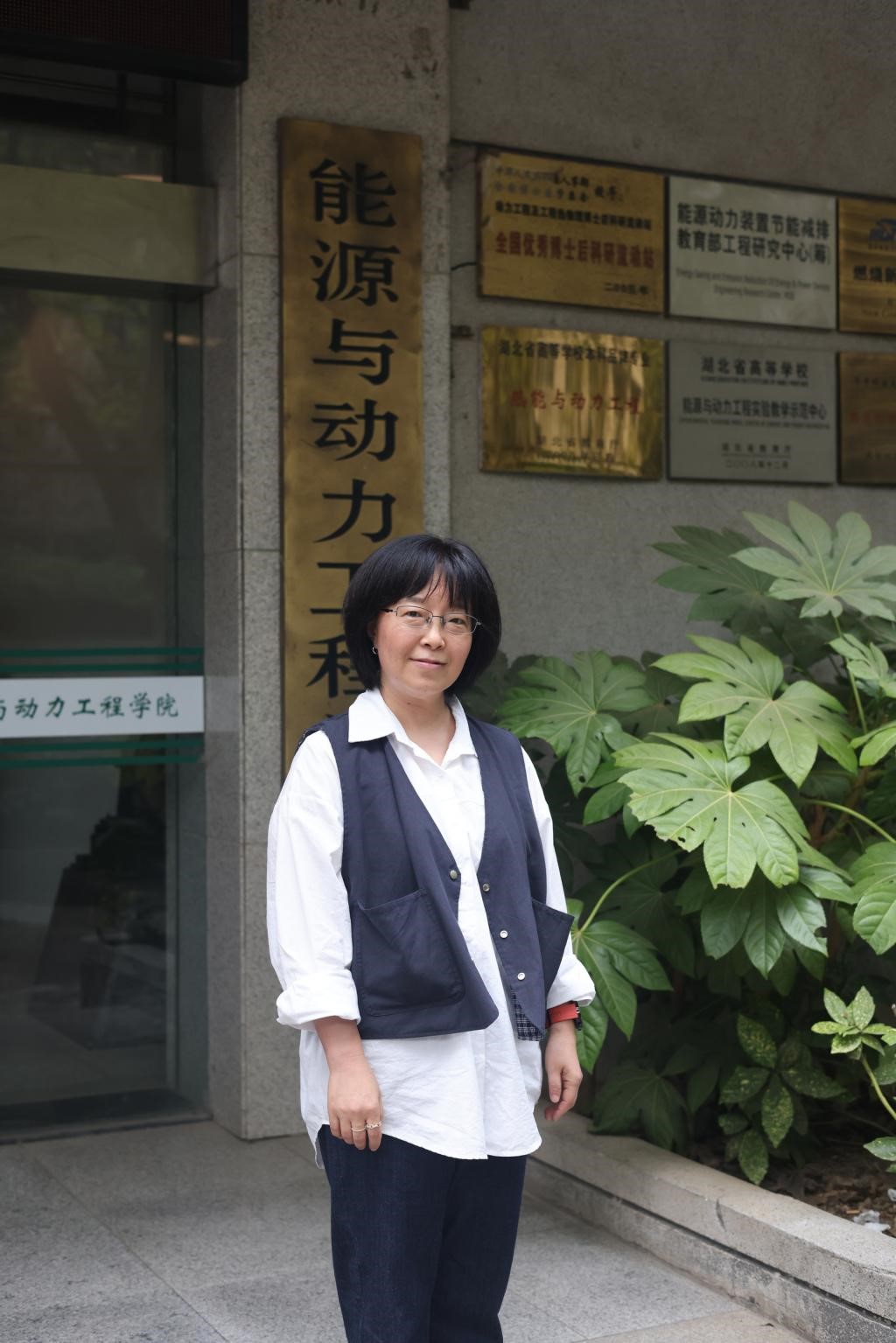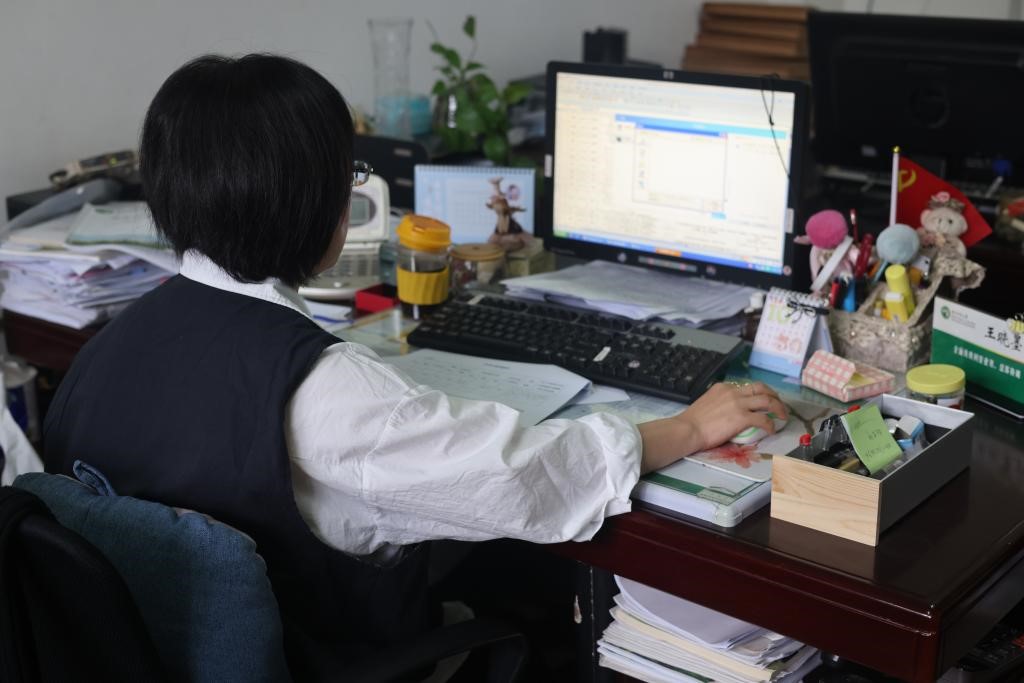Dr. Wang Xiaomo is the associate professor and the head of the Academic Affairs Section for Undergraduates of the School of Energy and Power Engineering. Having worked for HUST since 1997, she has engaged in undergraduate teaching management as well as the research and teaching of heat transfer, mass transfer and multiphase flow.

Wang Xiaomo has been teaching and doing research at HUST since 1997. She once taught several courses such as Engineering Heat Transfer, Engineering Thermodynamics, Nuclear Power Plant Installation and Equipment for undergraduates, and Gas-Liquid Two-phase Flow and Heat Transfer for postgraduates. She won the first prize in the teaching competition of HUST, the second prize for her teaching quality, and the grand prize and the first prize for teaching achievements. As one of the main editors, she participated in the compilation of four textbooks, including Engineering Heat Transfer. In terms of scientific research, her doctoral dissertation was awarded the Excellent Doctoral Dissertation of HUST in 2005. Besides, she has participated in several projects, including the National Natural Science Foundation of China, 973 (National Key Basic Research Development Project) and other projects, and presided over several horizontal projects. Previously for research awards, she has won the Outstanding Commissioner of Guangdong Province, the third prize of Guangdong Science and Technology Progress Award, and the third prize of Hubei Science and Technology Progress Award. Moreover, she has also published more than 10 scientific research papers.
Around 2010, the then head of the Academic Affairs Section at the School of Energy and Power Engineering retired. After soliciting opinions, the School recommended Wang Xiaomo to work for the Section. Wang Xiaomo still felt anxious despite some experiences in teaching management. Looking back on the past decade, she said, “If time went back and I were given one more chance, I would still honor my original choice.”

Over the past decade, Wang Xiaomo has conscientiously committed to her work on teaching management, implemented standardized management, and cared for her students. After engaging herself in the management of the academic affairs for undergraduates, she has presided over 3 provincial- and school-level educational reform projects and published more than 10 papers on teaching. She once served as the Deputy Secretary-General of the Teaching Steering Committee for Energy and Power Engineering Majors in Colleges and Universities under the Ministry of Education, as well as the headteacher of Class 1903. She has won the Outstanding Academic Staff Award, Outstanding Individual Award in Student Registration and Management Work, McQuay Teaching Award, CGN Teaching Fund, Excellent Instructor of Scientific and Technological Innovation for Undergraduates, etc. In addition, she has been awarded both the national and provincial-level second prizes and a school-level grand prize for teaching achievements. During her tenure as the head of Academic Affairs Section, the School of Energy and Power Engineering has been awarded multiple times as the Excellent School (Department) for undergraduate teaching, the Excellent School (Department) for undergraduate graduation design (Thesis), the Excellent School (Department) for curriculum design, and the Excellent School (Department) for experimental teaching.
Wang Xiaomo holds that when handling academic affairs, everyone needs to maintain “three senses”, namely the senses of carefulness, patience, and peace of mind. Carefulness means you should pay attention to every detail in the work; patience requires steady movement forward and conscientious practice; peace of mind is to maintain a positive mind for work and try your utmost when carrying out teaching management. Only with dedication in this way can all the work be carried out in an orderly manner.
Wang Xiaomo firmly believes that by upholding the idea of “three senses”, her work will surely play its due role, serve both faculty members and students well, and make her contribution to the development of both the School of Energy and Power Engineering and HUST as large.

Working at the School of Energy and Power Engineering over the past two decades, Wang Xiaomo believes that the support and understanding from the faculty members and students as well as the harmonious working atmosphere have left her the most unforgettable memories. The faculty members and students can also become friends and grow up together. When the faculty shows more care to their students, who pay back with greater understanding, such a harmonious working atmosphere becomes even more valuable.
Wang Xiaomo has always cherished the suggestions and opinions from the students in particular, and she has been moved by every “thank you”. She mentioned that every academic staff shared the same feeling that the academic affairs could be carried out more smoothly with the understanding and support of the faculty members and students. She hopes that after graduation, every student from the School of Energy and Power Engineering will have more passion and recognition for the School and HUST because of her work. For Wang, this would be the most rewarding part of her work.
Over the past two decades, Wang Xiaomo has passionately devoted herself to education by earnestly fulfilling the sacred duty of teachers to “train talents through moral education”. With sound professional qualities and personal morality, Wang has always stayed meticulous, truth-seeking, and pragmatic to serve as a good example and implement strict management in work. Adhering to training talents with “three senses”, she has won the recognition from the faculty members and students for her conscientious efforts and has made ordinary but important contributions to the development of both the School of Energy and Power Engineering and HUST as a whole.
Editor: Peng Yumeng
